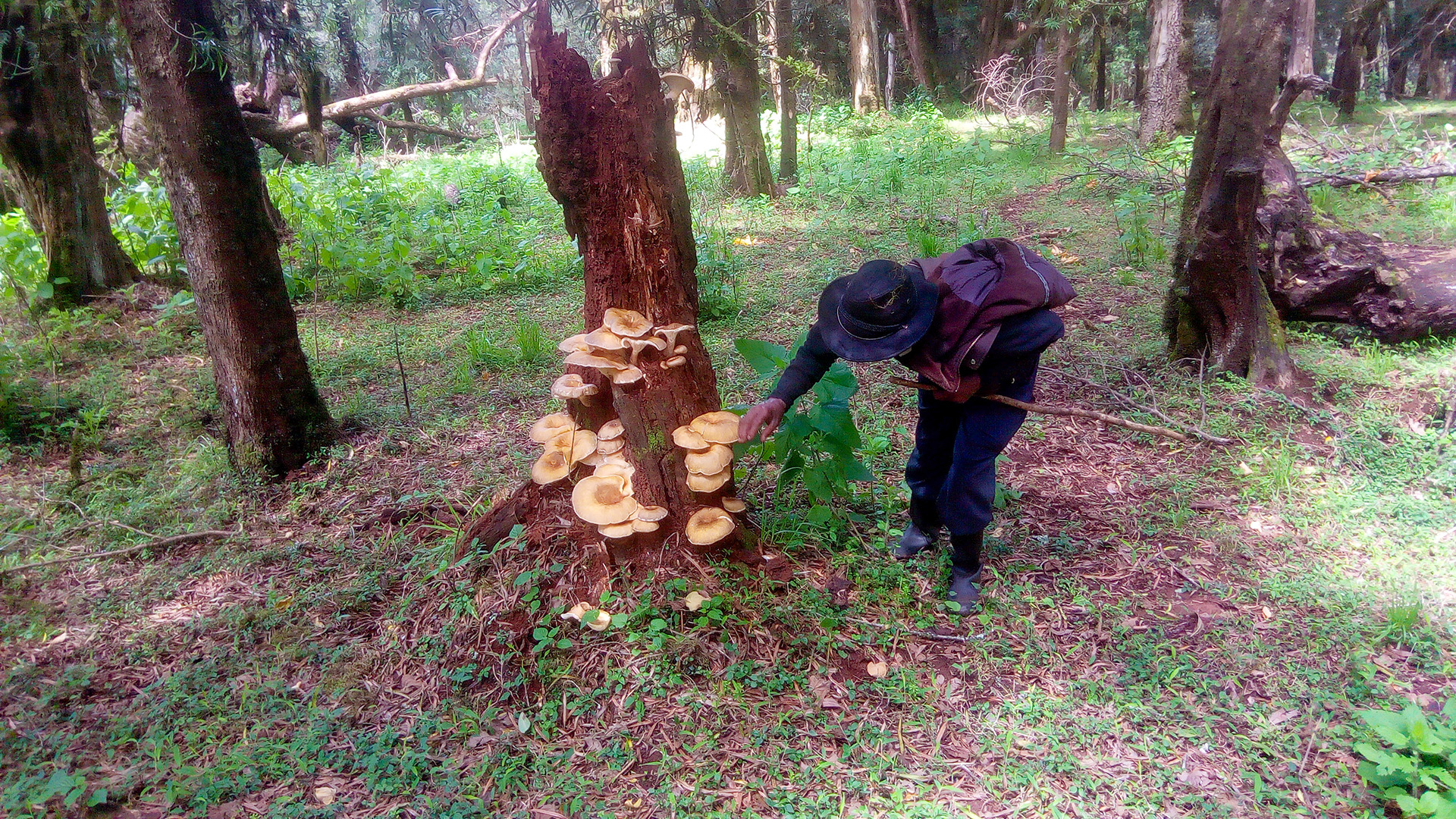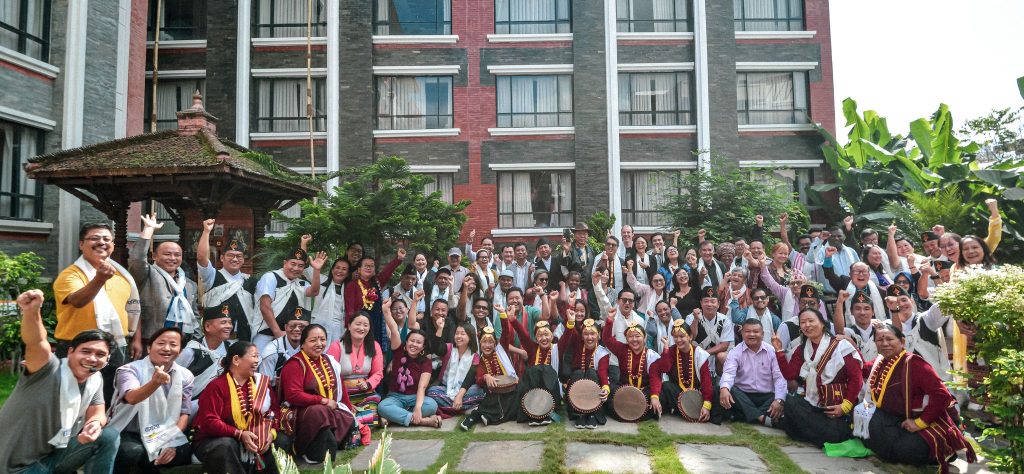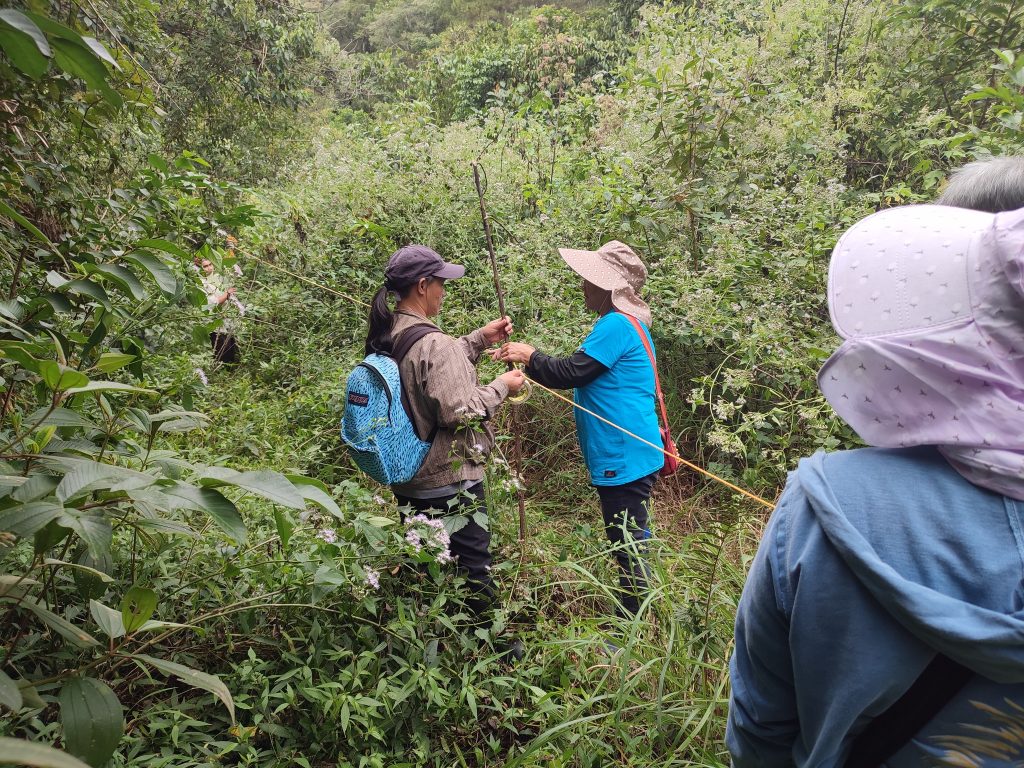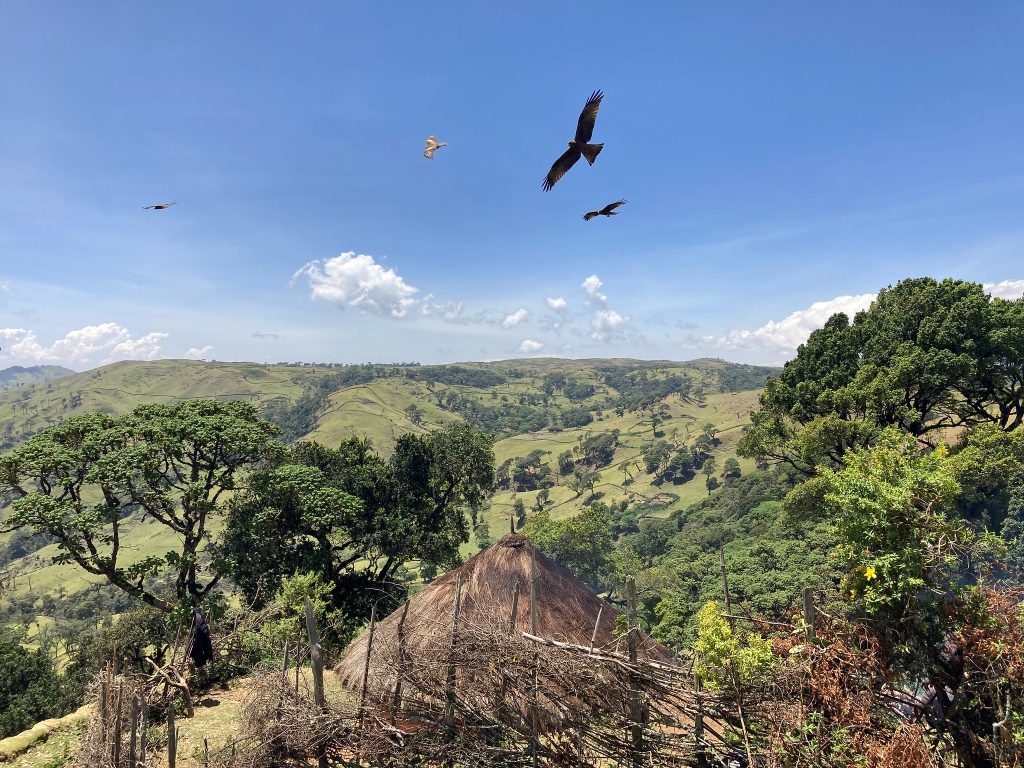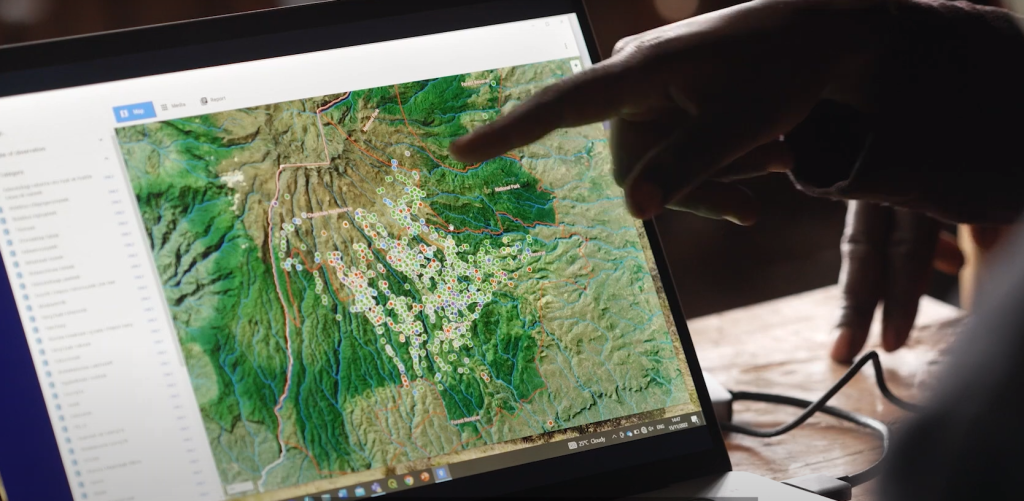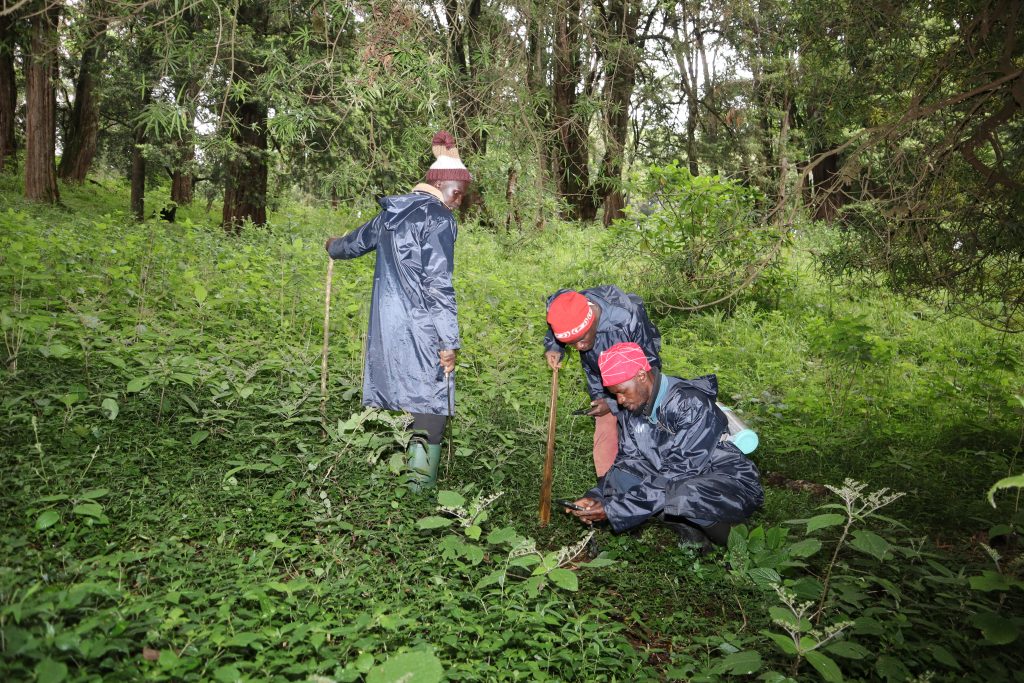Community-based monitoring and reporting is critical for understanding and conserving the world’s biodiversity. To be successful, it needs the effective participation of indigenous peoples and local communities who have detailed knowledge about local territorial and ecosystems management.
The Transformative Pathways project supports the co-development of community-owned monitoring frameworks, using a set of locally-defined cultural and biodiversity indicators and linking these to national and global monitoring and reporting of progress towards the achievement of the 4 goals and 23 targets of the Kunming-Montreal Global Biodiversity Framework.
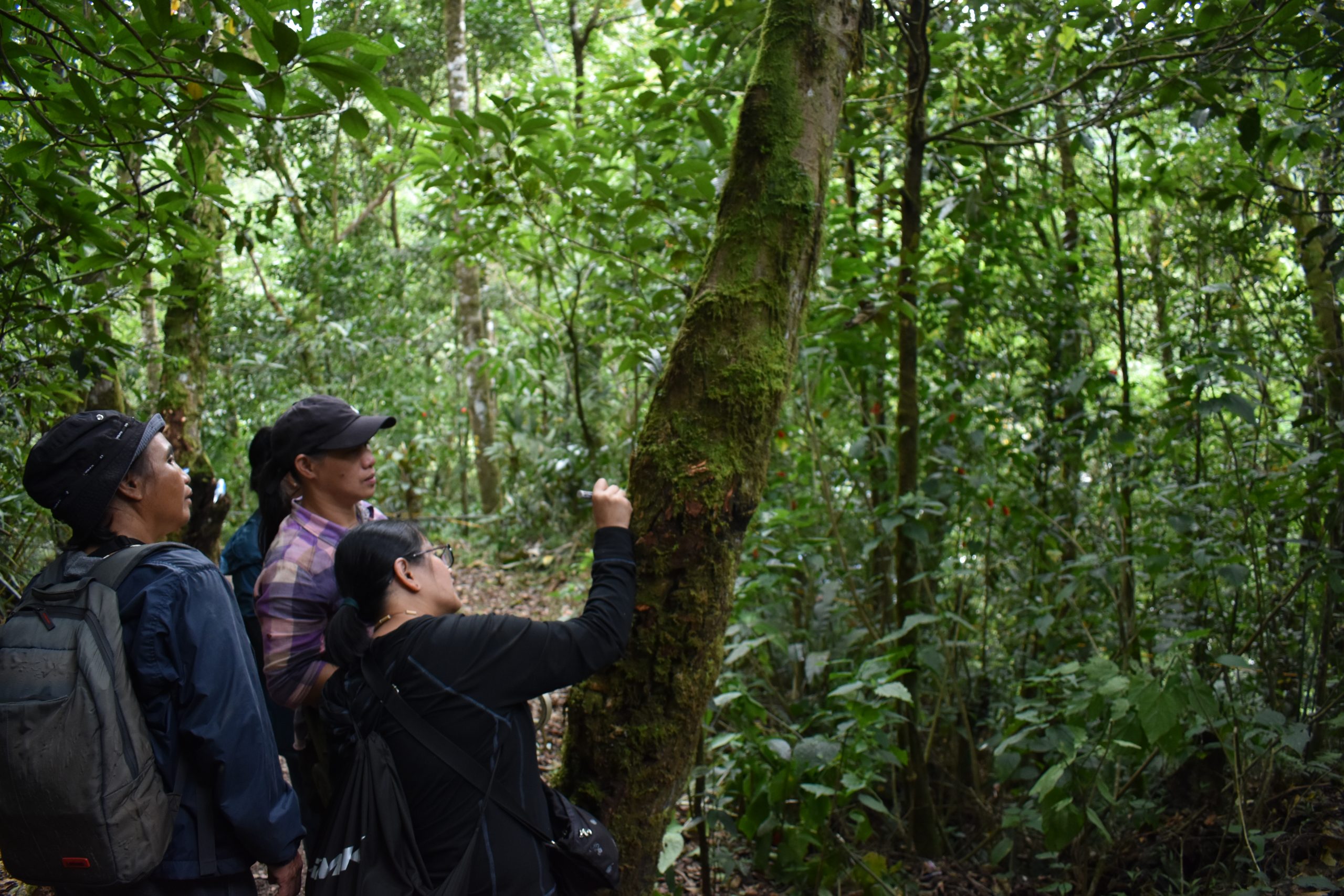
Foresters carefully mark the trees for easier monitoring during a training on resource inventory mapping held in Nueva Viscaya, Philippines. Photo by Ella Carino/PIKP
Dashed line
Activity
Further info
Supporting this work is ICCS, who are co-developing and piloting a suite of new biodiversity monitoring methodologies and approaches, building on local and traditional knowledge and on the technical expertise of FPP and in-country partner organisations. ICCS also provide, where requested, ongoing support to project partners and communities to enhance their customary systems of conservation and natural resource management plans. Using these monitoring systems, communities will be able to assess key biodiversity indicators such as key species, ecosystem health, traditional occupations.
Bringing their expertise on biodiversity indicators into the project, UNEP-WCMC are supporting the development of relevant indicators to evidence the vital role that Indigenous Peoples and local communities play in the realisation of the Global Biodiversity Framework and, more broadly, in the conservation and sustainable use of biodiversity. They also ensure synergies with the Biodiversity Indicators Partnership (BIP), a global initiative whose secretariat is provided by UNEP-WCMC.
